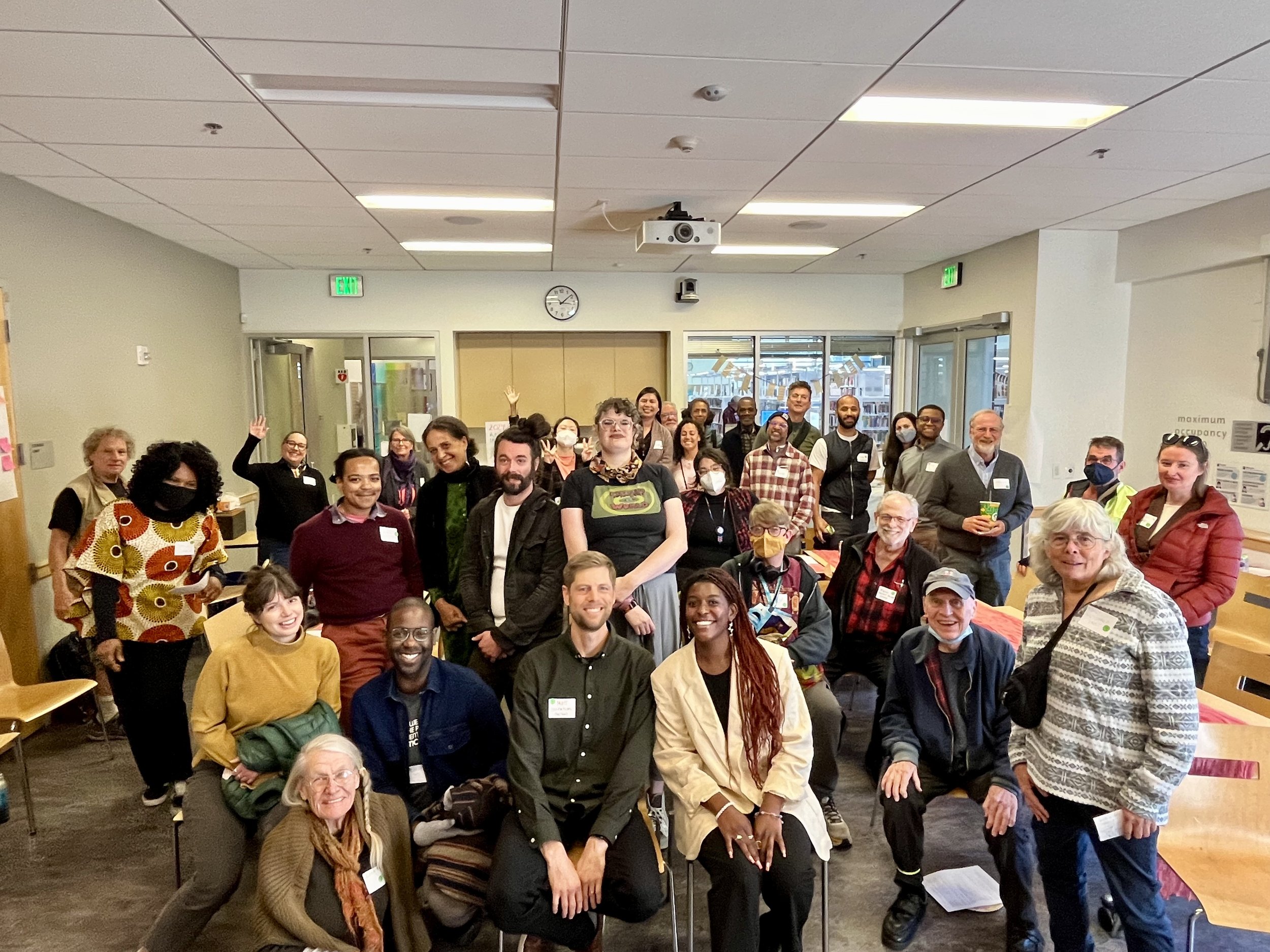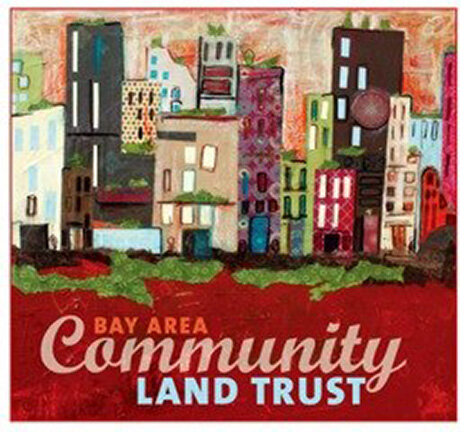
BACLT CO-OP Development
The longevity of housing cooperatives are directly tied to the accessibility of robust training, education, and technical assistance programs.
It is the goal of the Bay Area Community Land Trust that all of its properties become substantially self-managed Housing Cooperatives. BACLT staff offers a series of free interactive workshops for all residents to orient them to the roles, responsibilities and skills required for operating a cooperative before transferring ownership to the Co-op Entity. Residents learn hard skills pertaining to property management, bookkeeping principles, and other nonprofit organizational management and governance skills. BACLT staff hosts workshops at least once per month per property. Before the pandemic, all workshops were offered on-site. Post-pandemic, most workshops are provided via Zoom for each group of residents at each property, with occasional on-site meetings when outdoor space is available.
Co-op Management Education Workshops
(1 hour each)
-
Co-ops have agreements between members about how the co-op operates on a daily/monthly basis, often assembled in an “Operations Manual.” We begin with a template of agreements developed by BACLT with other Co-ops. This template serves as the basis for the new Co-op’s agreement, and Co-op members identify their preferences and priorities to create their own Agreements document, using their chosen democratic decision-making process. Member agreements can be expanded more during secession on Roles & Responsibilities // communication preferences.
-
How to develop a common language among diverse households. Includes basic meeting guidelines and facilitation practices, communication and organizing tools, and prepares residents to work together to form a successful co-op. Includes varying ways to create and organize Agendas and Notes/Minutes.
-
Comparison of different types of democratic decision-making structures and processes (e.g., majority, consensus, modified consensus). Define what is a voting unit, meeting quorum and voting threshold. Review types of decisions & importance for documenting all decisions in writing. Include discussion of how committees can help to save time without people feeling left out of certain decisions.
-
Residents will establish preliminary decision-making structure, including: voting unit, meeting quorum, voting threshold/voting method. As well as the process for raising an issue for discussion and decision (and determining how decisions will be made at the next meeting, via email/online, by committee, etc.). Once these are established, planting seeds for future consideration on the benefits and possibilities of a future second-tier of decision-making.
-
What does “self-management” entail, divvying responsibilities across the formation of teams (aka committees) or point people to keep things moving between resident meetings. Clarifying what are the steps for transferring management responsibilities to the residents. Differentiates the Roles & Responsibilities of the BACLT and those of the Co-op (as a group and as individual co-op members). Update the Community Agreements with member rights/responsibilities.
-
How to schedule and budget for preventive maintenance, maintenance responsibilities for individuals and the co-op and how to select contractors to carry out repairs. We will establish a Maintenance Committee which will draft Maintenance Rules to be considered by the whole group and Managing the Property Manager. This will set the discussion for building out further long-term property maintenance planning (i.e. Capital Investment Planning).
-
Presentation on how to read a Property Operating Budget (what are the line items); how to develop and revise an Annual Operating Budget to meet the co-op’s needs; and how to maintain essential financial reserves. We also explain the roles of the co-op and BACLT in managing the long-term financial health of the property.
-
Group discussion and decision-making about member responsibilities related to finances: tracking rental income, monthly expenses, monthly bookkeeping practices, and how to review monthly/quarterly financial statements. Establish a Finance Committee. Follow up workshop each Fall to prepare the new year’s operating budget.
-
Normalizing conflict as an inevitable part of group collaboration, grounding in healthy ways to move through it, and naming the ways in which conflict can be generative and an opportunity for deeper relationship building. Come away with tools for building out collective structures and care plans for moving through conflict.
-
There are legal requirements for selecting new members including City Regulatory Agreements, Fair Housing Law, Affirmative Marketing Materials, and BACLT guidelines. Includes marketing, orientation, open houses, application, wait lists. And beyond that, this process is an extension of a property’s community agreements and culture. Draft a process (welcome handbook, presentation, resident buddy, etc.) to orient new members joining about how the co-op functions and how to plug in as a new member.
-
Review the properties agreement so all members are familiar with the document. Review the City, County, State/IRS (annual filings when they are a legal entity). Review the annual compliance calendar milestones throughout the year - government and lender.
-
Understanding BACLT’s organizational structure and lessee member voting rights. Overview of the other BACLT properties.
Co-op Conversion Workshops
Comparison of 3 Co-op models:
Review the three entity models that BACLT supports: Resident-Operated Nonprofit Co-op, Limited Equity Housing Cooperative. Review costs/benefits of each, considerations, success stories and challenges.
Co-op Entity Decision: Residents vote on which Co-op entity model they want for their property.
Creation of Co-op Legal Documents: establish working group to move this along with group review; docs depend on model selected
Articles of Incorporation
Bylaws
501(c)3 application
Operating Agreement
Ground Lease
State Organizational Clearance Certification (if RON)
Member Share Certificate (if LEHC)
CC&Rs - Covenants, Conditions, and Restrictions (if LEHC)
Post-Conversation Technical Assistance Series:
● Co-op Board Elections
● Half-Day Co-op Retreats
● Meeting & Facilitation Skills
● Maintenance Planning & Budgeting
● Marketing & Member Selection
● New Member Orientation
● Communications - from Digital to Analogue
● Annual Budget Development
● Capital Improvement Planning
● Insurance Renewals and Claims
● Systems Organizing
